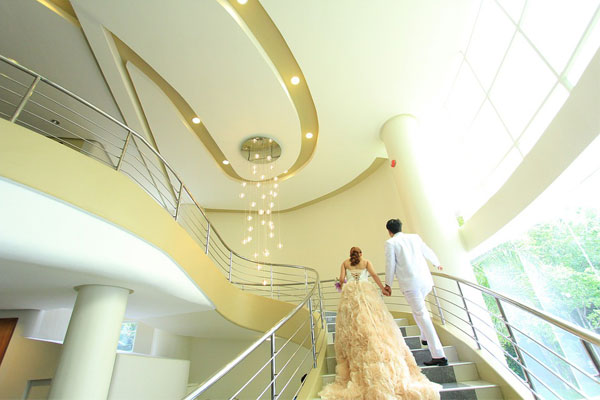What existing hotel sales & marketing materials are lacking.
When I first began writing this article, it was supposed to be titled "The Top New U.S. Hotels For Your Destination Wedding." I thought it would be easy to find newly opened United States hotels to recommend for luxury weddings. My plan was to take five key points from the “LLG Standard,” an event evaluation that I developed over the past several years, and have applied to numerous hotels through onsite visits. This Standard resulted in me building and teaching core curriculum courses for New York University Center of Hospitality’s M.S. in Event Management program, the first of its kind in the United States.
Therefore, I thought I could also perform this event evaluation remotely, applying it to hotels based on the information provided by a general search on their website. If not on their main websites, I was certain that I could find the criteria that I (and many other event planners or couples searching for venues) needed on their weddings, meetings, or events pages.
However, as I started to go through the list of hotels within my portfolio and various online listings, I realized that none of these hotels know what information to display on their website in regards to weddings and events, or the most useful information to showcase to the planner and to the couple.
For example, one of my five key points was to examine the amount of rooms the hotel had, in relation to their event space. This would allow me to compare the amount of guests that I could potentially invite to my event, versus the amount of guests that could stay overnight at the same hotel.
As my search endured, I found the number of rooms (sometimes), but I could not find the maximum capacities for all the hotel’s event spaces.
And that was just the beginning. I wanted to compare their interior space capacity against their exterior space capacity; I wanted to go through a portfolio of images and floor plans showing me each of the different spaces; I wanted to see what other couples have done with the space to get inspired and start generating an idea of how many tables or chairs I could fit, etc.
Yet, what I found was basic information regarding “wedding planning services” or vendor referrals with outdated images and offerings.
How are wedding planning services relevant when the first step of any process is to secure a space to host the event? You need the event space details before you can even begin to think about the event details.
Furthermore, I could not even identify all the event spaces that the hotel had to offer. The pictures on many of these websites were of place settings, or beachside ceremony spaces; however, couples typically only spend 20 minutes of their event in a non-religious ceremony space. The majority of their event, typically around five hours, is spent within a reception space; and yet there was no representation of these reception offerings. So while ceremony spaces are beautiful and sellable, I mainly want to see the reception space where our clients are spending the most time and money.
My findings, and the fact that it’s no secret that the experiential marketing and events industries continue to grow year after year, demonstrate that more hotels need to start investing in actual event spaces, instead of trying to create event spaces within their existing lobby, restaurant, bar, or hotel suites.
The event evaluation that I originally set out to use for my article gives hotels the ability to measure their event performance against an accredited target state, as well as defines the right criteria needed to build or designate a new event space.
Some questions that the LLG Standard evaluates are:
- What is the amount of hotel rooms available versus the maximum occupancy of the event space?
- Does the hotel actually have a capable event space? Restaurants and poolside dining experiences do not count.
- What vendors does the hotel work with, and what is their vendor list criteria?
- What are the event services offered, with associated pricing, during both the on and off seasons?
- What are clients or consumers saying about the hotel brand? Since weddings are a personally-branded experience, couples want to feel personally connected with their hotel brand – especially if they are listing it on their invitation.
If a hotel wants to be considered a top event space, then at a minimum, they should have the above five pieces of criteria showcased on their website and within their sales materials, so they are fully transparent and informative to both the event planner and the client.
Now to accomplish my original mission of performing these remote hotel event evaluations, I’m faced with either reworking my criteria to pull from the information that is currently available on hotel websites; pursuing an industry-wide change in hotel event sales and marketing materials to include the above criteria; or solely conducting my thorough evaluations on an in-person basis.
Curious to see how it pans out? So am I! Stay tuned to keep abreast of the pending challenges facing the event industry as it integrates with other sectors – namely, hospitality.
Lauren Grech is CEO & Co-Founder of LLG Agency & LLG Events; and Adjunct Professor at New York University.







































































































































































